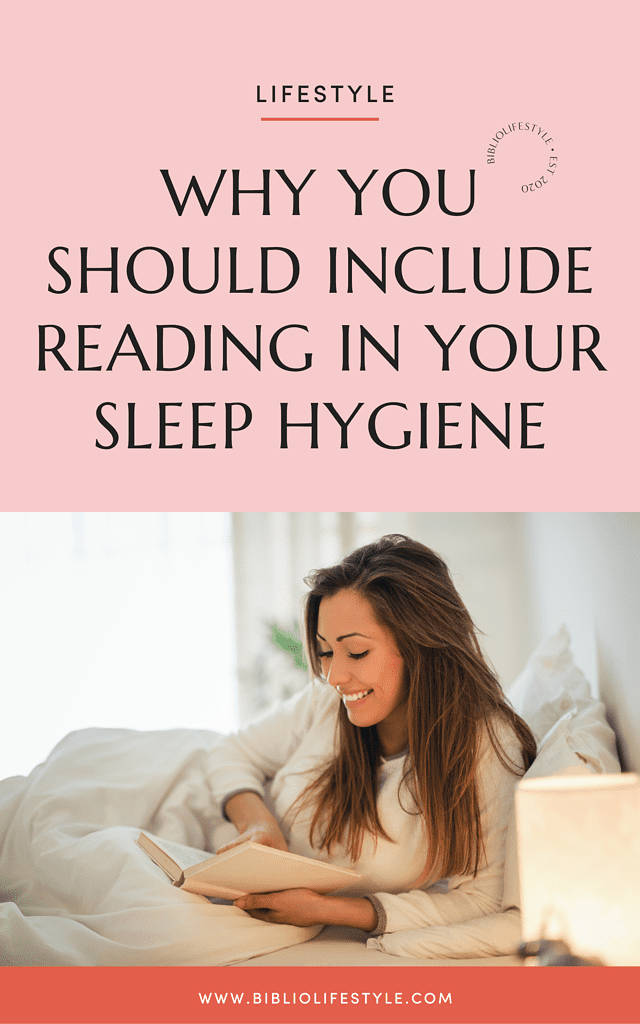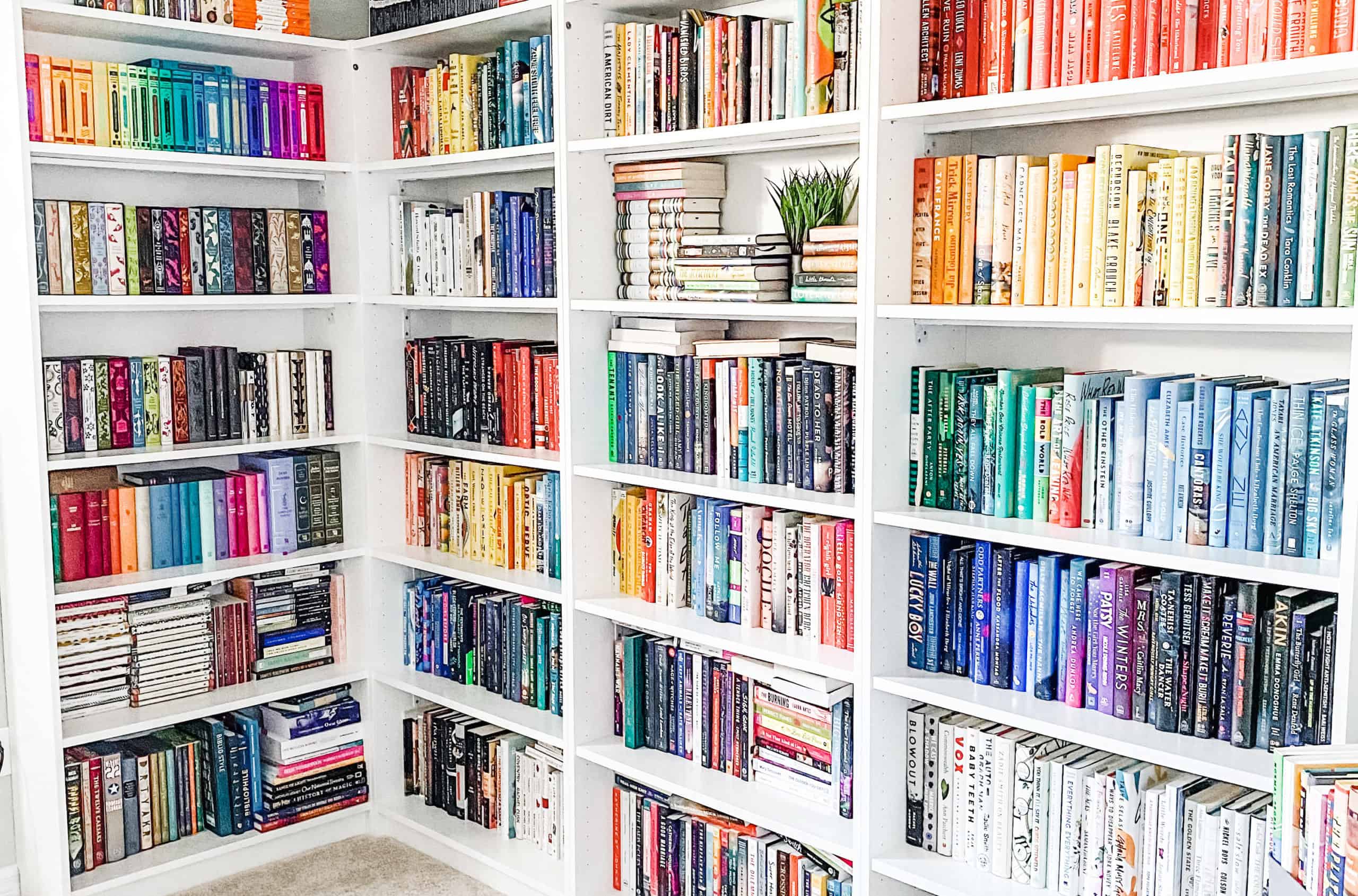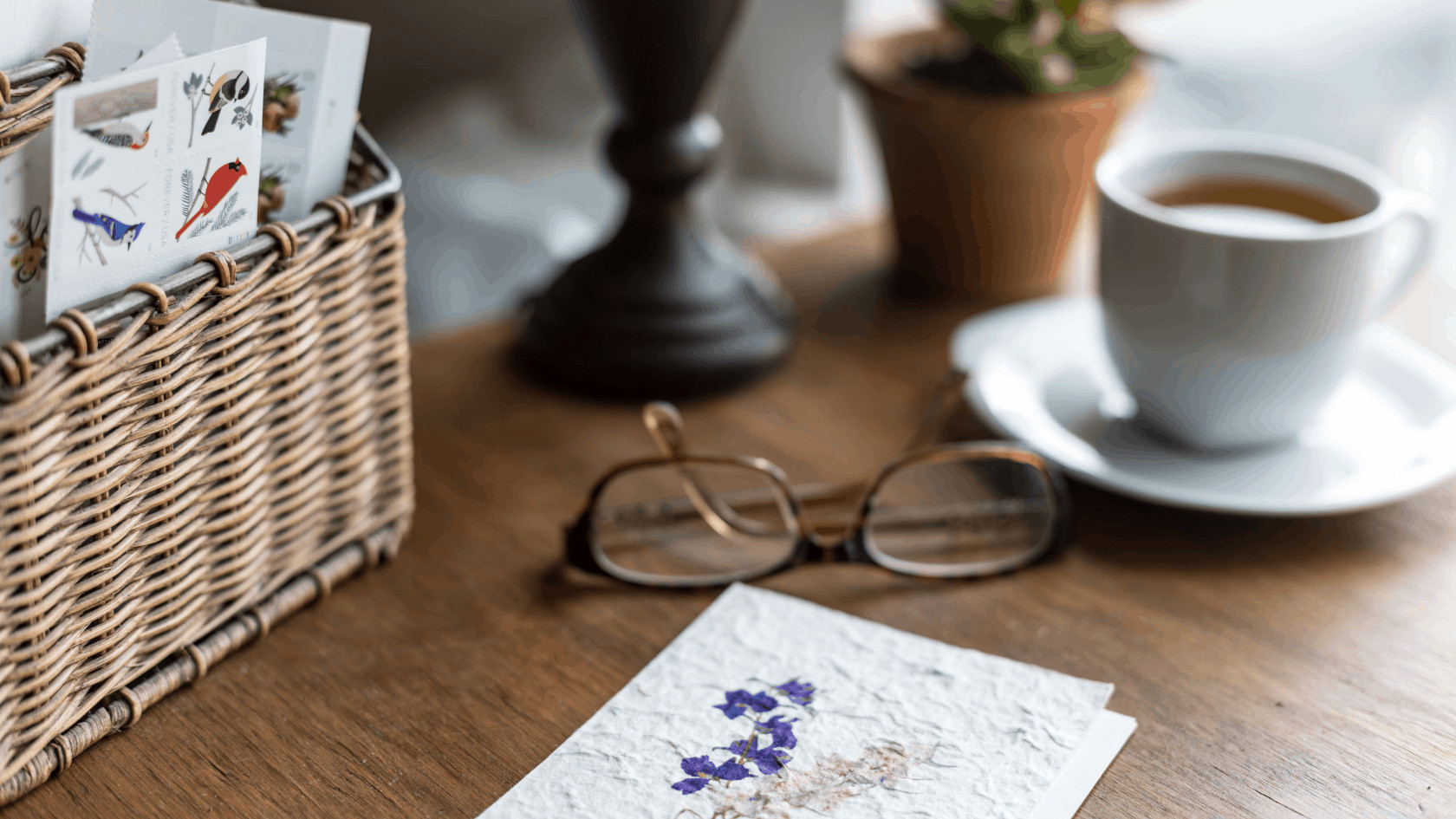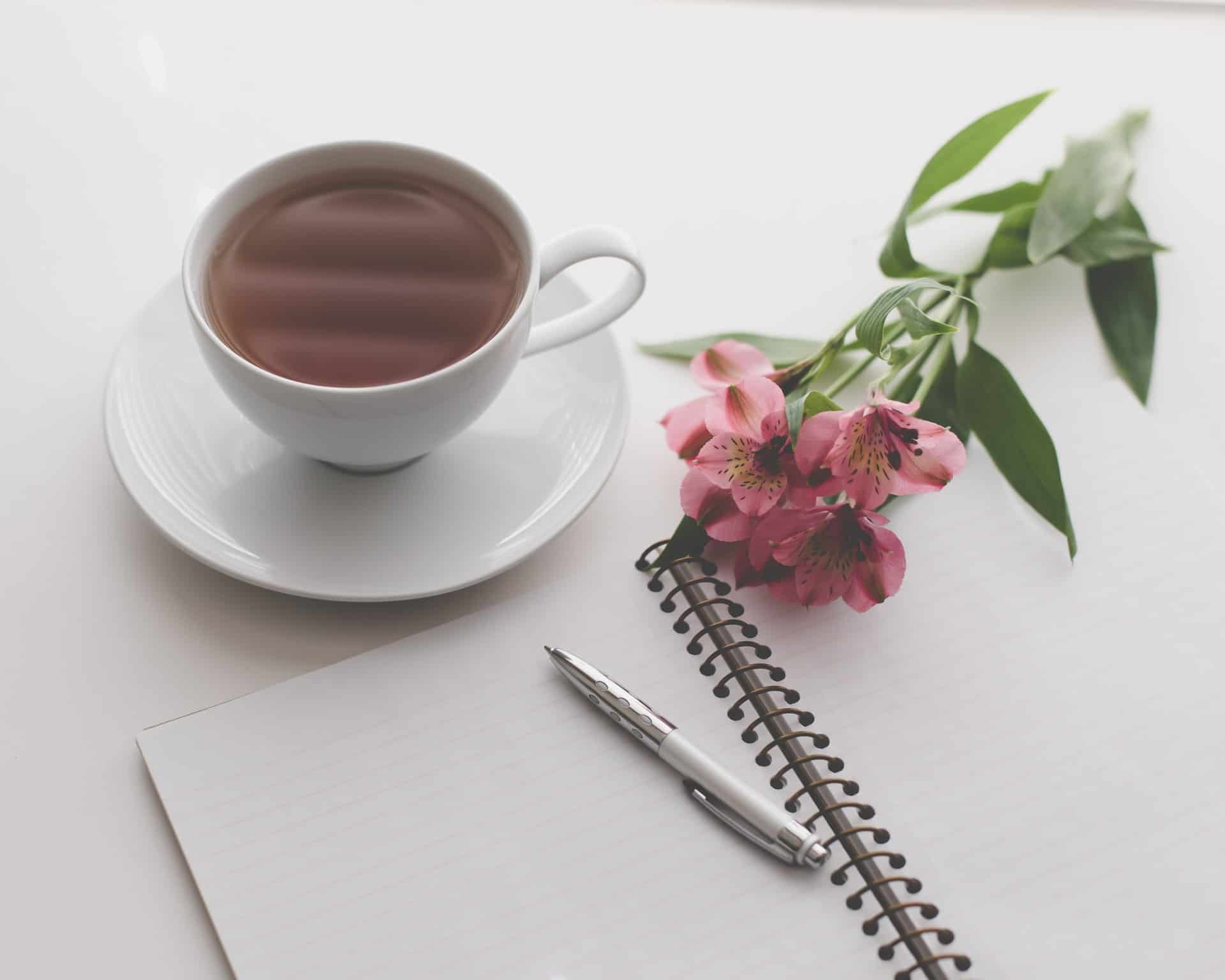Last Updated on March 12, 2023 by BiblioLifestyle

Quick question: How well did you sleep last night, and what is your sleep hygiene like?
Sleep is essential, yet sometimes I feel it’s such an underrated and under-discussed part of self-care. I also know that getting a good night’s sleep can sometimes feel elusive because even though you do sleep, there are days when it feels like it’s never enough. So it’s always the perfect time to look at your sleep hygiene, think about ways to prioritize sleep and start new healthy sleep habits.

First, what is sleep hygiene?
The National Sleep Foundation defines sleep hygiene as “a variety of different practices and habits that are necessary to have good nighttime sleep quality and full daytime alertness.” I also read we naturally feel tired at two different times: about 2:00 AM and 2:00 PM. This natural dip in alertness is primarily responsible for the post-lunch crash.
Obtaining healthy sleep is essential for both physical and mental health. It can also improve productivity and overall quality of life. Everyone, from children to older adults, can benefit from practicing good sleep habits.
What are the signs of poor sleep hygiene?
Poor sleep hygiene can reveal itself in many forms, from sleep deprivation to sleepwalking. Those who suffer from poor sleep hygiene may have a hard time falling asleep as well as staying asleep through the night. They may experience frequent nightmares or find it difficult to focus during the day due to sleepiness and fatigue. Other signs of poor sleep hygiene include insomnia, difficulty concentrating, irritability, and feeling moody or depressed. Additionally, those with poor sleep hygiene may find themselves craving sugary foods or caffeinated drinks during the day in an effort to stay awake and alert instead of resting proper during their designated bedtime hours. If these signs become a regular occurrence, it is important to analyze your sleep habits and determine which ones need some attention in order to ensure better quality sleep each night.

Benefits of Reading as Part of Your Sleep Hygiene
Have you ever found yourself dozing off as you’re reading? It’s a normal response to being still and not exposing yourself to blue LED light (assuming you’re reading a paper book). If you’ve chosen to read something particularly dull, it’s likely to put you to sleep even faster.
Are you still feeling doubtful? Think back to childhood or consider your kids’ behavior (if you have them). For example, bedtime stories are a nightly ritual, and many toddlers and young children will tell you that they need to hear a bedtime story before falling asleep. There’s no reason that this ritual can’t continue into adulthood.
One of the best ways to improve your sleeping patterns is to read before going to bed. Reading relaxes your mind and helps transition you from the busy world into a peaceful slumber. Not only does it assist with nightly rest, but benefits include improved concentration, heightened empathy, and a reduced stress level. So if you’ve been looking for something helpful in promoting better sleep, why not try curling up with a novel before lights out?
Other benefits of including reading in your sleep hygiene include:
- Reduces stress
- Boosts brain power
- Better concentration
- Improves creativity
- Relaxing
- Increases Empathy

What are ways to help develop better sleep hygiene?
Developing better sleep hygiene is an important part of everyday life. If sleep quality is not up to par, it can lead to negative physical, mental, and emotional effects. Some ways to help improve sleep hygiene include limiting caffeine and alcohol consumption, sticking to a particular sleep and wake schedule, creating a “sleep oasis,” or restful sleeping area that’s dark and quiet, avoiding napping during the day, exercising regularly throughout the day, and disconnecting from tablets and phones in order to avoid blue light exposure. These strategies can help provide the much-needed foundations for improved sleep hygiene.
What are some things you can do to help you sleep better?
Good sleep is essential to maintain your physical and mental health, so practicing sleep hygiene is essential. This includes establishing a regular sleep schedule and creating an environment suitable for sleep. Other ways to help you sleep better include trying different relaxation techniques like yoga or meditation, avoiding stimulants such as caffeine and nicotine, avoiding excessive alcohol consumption, and exercising during the day. Eating a light snack before sleep can also help relax you and avoid having an overly full stomach late in the evening. Lastly, creating a restful atmosphere by dimming lights and shutting down electronic devices can be beneficial for people trying to sleep earlier. By practicing these sleep hygiene habits, you should be able to have a more productive sleep every night.
About my sleep hygiene
Once upon a time, my mornings used to be like this meme. I feel terrible because I ask my husband to wake me up every morning, and bless his heart; he tries. But, most mornings, I feel so exhausted I never get out of bed immediately. Then, of course, it’s the mad rush to get ready, get out the door, grab my coffee, and pray the caffeine kicks in. But when I started to slow down, be more mindful of how I spend my time and prioritized taking care of myself, I saw the benefits of consistently getting a good night’s sleep and sticking to my sleep hygiene.
When I started my new sleep hygiene routine, this is what I planned, and I think it’s an excellent start for beginners who are slowing down and prioritizing sleep:
- First, I start putting my phone away ninety minutes to two hours before my planned bedtime.
- Next, I’m swapping my usual shower gel for a lavender-scented one because lavender is calming and soothing.
- Next, brew a nice hot cup of chamomile or peppermint tea, two flavors I also find calming and soothing.
- Next, engage in five minutes of meditation.
- Finally, select a book from my nightstand’s TBR stack to help me unwind.
Start your new sleep hygiene routine by putting down your phone, grabbing a book, and settling in for the night. Avoid e-readers in the bedroom because the blue LED lights disrupt melatonin production and prevent sleep onset.
Happy sleeping!
Do you read before you go to sleep? Does reading put you to sleep? Do you have a sleep routine? Please leave us a comment below and let us know.




+ show Comments
- Hide Comments
add a comment